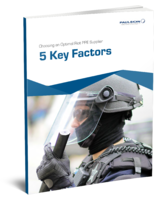Collected Papers cover metallic medical material fatigue/fracture.
Press Release Summary:
Third volume of ASTM International's STP 1559, Fatigue and Fracture of Metallic Medical Materials and Devices, includes 11 peer-reviewed papers on fatigue behavior of nitinol SMA's and influence of residual surface stress as well as influence of inclusions and test speed on long-life performance. Other topics deal with biomechanical loading and fatigue characterization of orthopedic devices, surface modifications on fatigue/corrosion behavior of Ti-6Al-4V, and fracture toughness of Ti-MMC.
Original Press Release:
Fatigue and Fracture of Metallic Medical Materials and Devices
ASTM International Releases New Volume of Compilation
W. CONSHOHOCKEN, Pa.—A new volume of the ASTM International compilation, STP 1559, Fatigue and Fracture of Metallic Medical Materials and Devices, is now available.
The 3rd volume of Fatigue and Fracture of Metallic Materials and Devices features 11 peer-reviewed papers that provide the latest research on the fatigue behavior of nitinol SMA’s and the influence of residual surface stress, as well as the influence of inclusions and test speed on long-life performance.
Other topics deal with information on biomechanical loading and fatigue characterization of orthopedic devices, surface modifications on fatigue and corrosion behavior of Ti-6Al-4V, and the fracture toughness of a Ti-MMC.
STP 1559, Fatigue and Fracture of Metallic Medical Materials and Devices, is available for $60 USD in print (172 pages; 6” x 9” soft cover; ISBN: 978-0-8031-7545-7; stock #: STP1559) or as an e-book (ISBN: 978-0-8031-7584-6; stock #: STP1559-EB).
To purchase ASTM publications, search by stock number on the ASTM Web site (www.astm.org), or contact ASTM Customer Relations (phone: 877-909-ASTM; sales@astm.org).
ASTM International is one of the largest international standards development and delivery systems in the world. ASTM International meets the World Trade Organization (WTO) principles for the development of international standards: coherence, consensus, development dimension, effectiveness, impartiality, openness, relevance and transparency. ASTM standards are accepted and used in research and development, product testing, quality systems and commercial transactions.
ASTM Staff Contact: Marsha Firman, Phone: 610-832-9612; mfirman@astm.org




